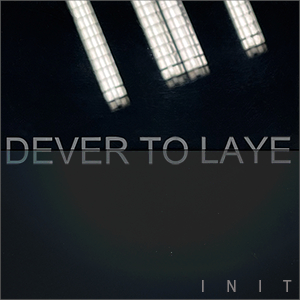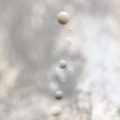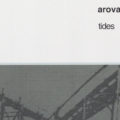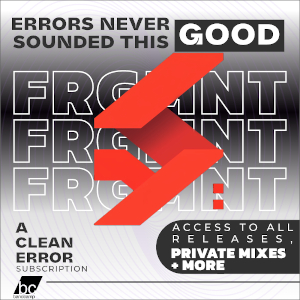::..:::…..:..::….:::::..:::..:::::::……:::…::.:::….::::..:..:::…::…….:::::
Igloo: Who is Arovane? And who is Nedjev? Tell me something about your beginnings in music, about experiments with microphones, treated tapes and Casio keyboards in the 80’s.
Arovane: Arovane is Uwe Zahn and Uwe Zahn is Nedjev. I started the project Nedjev to release music with a low-fi touch.
Igloo: What do you mean with that? You mean like low-fi aesthetics, like what Pavement were doing in the rock music?
Arovane: Generally, lo-fi sounds –noisy sounds, crackling, humming. And the use of older digital synths like the Casio VZ-M. It sounds very noisy and trashy. I’m always interested in acoustic experiments. In the 80’s I didn’t have enough money to buy a sampler or synthesizer. I took tape recorders to record sounds. I manipulated the hardware of the tape recorder to slow down the speed, play tapes backwards… I used two or three microphones in different rooms and mix the signal.
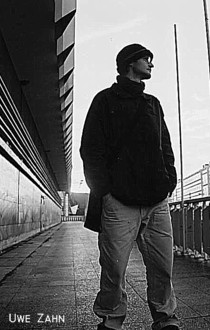
Igloo: I have been doing some experiments with tapes myself. I think that is actually very interesting way of collecting and compiling various sounds.
Arovane: For me, it was a way to manipulate sounds in the pre-era of sampling.
Igloo: What is/was S.A.M.?
Arovane: The basic idea behind six and more sessions has been, one the one hand, to provide an open platform of cooperation for musicians involved in electronic music in one way or another and, on the other hand to create a type of music that can only be realized by a rather special concept. This led an open ended series of sessions at which six (and more) musicians would interact in a free collective improvisation and thus create intricately structured, resourceful and dynamic sonic space….pure communication by sound…live electronics.
Igloo: In 1991 you moved to Berlin. How much did that influence your views about music?
Arovane: Berlin have a massive influence to my sound. The infrastructure of clubs, labels, mastering studios, record shops is very important for me and my music. Another important aspect is the contact and the cooperation with other musicians. Christian Kleine for example, played guitar for the Tides (CCO) production.
Igloo: What do you think about today’s new music? There are many artists that make noise or glitch sounds often not pleasant to listen to. Your music is, on contrary, very pleasant and soothing.
Arovane: I always try to keep the balance between the experiment with noisy structures and sounds and the basic melodic idea of a track.
Igloo: I guess today there aren’t any new big (and/or popular) bands like Orbital, Underworld etc. What do you think –does the music need bands like that to go forwards and upwards, or is it the less known bands and musicians who actually make new sounds and innovate new music directions?
Arovane: Both. I played not in a band before but in the collective of s.a.m. and it was a very important experience for me. Communication is the key word. When you’re sitting in the studio, working alone, there’s not much communication. Communication with the machines.
Igloo: How did you get in touch with City Centre Offices? (Having released your album Tides) And what do you think, or – do you like other CCO albums: Ulrich Schnauss, Static, etc?
Arovane: I got in touch with Thaddi over the Kiss FM radio station and the radio massive show. A few years later he founded CCO and I made the first single release and the Tides album. Far Away Trains is a fantastic pop album. I also like the Christian Kleine and Remote Viewer productions very much.
Igloo: In 1995 you made break-beat tracks for Kiss FM. How would you describe this radio station?
Arovane: Kiss FM is a commercial radio station. In 1994/95 they had a live show called Radio Massive for break-beat, jungle and electronic music. They played tracks from unknown artists. I released a track on the German drum and bass compilation, Barcode on Motor music/Case Invaders.
Igloo: What music you listen to most lately?
Arovane: Currently listening to the Monolake album, Cinemascope as well as the new Boards of Canada album, the Dynamo cd and Computer Acoustic music.
Igloo: You have releases on many labels: Din, Vertical Form, City Centre Offices, Awkward Silence Recordings, Engelszorn. Why do you release your music on all those different labels? All that is very nice, but it’s also very hard for people to follow your next step, your next release.
Arovane: It was a way for me, as an unknown artist to spread my name around the world. But now and for the future I will release on Din and maybe on CCO. I made a lot of remixes for different labels and this took a lot of my time and creative energy. For 2002 I will concentrate on my work for my new album on Din.
Igloo: Tell me about your collaboration with Christian Kleine and Phonem.
Arovane: Christian Kleine and me have the same wavelength in producing music. Our studios have nearly the same equipment, it is easy for us to swap sounds and produce tracks. The collaboration between Elliot (Phonem) and me was very interesting because Phonem is mainly working with software. I’m working mainly with hardware to produce tracks. It was a special experience to connect both systems and combine our way to make music.
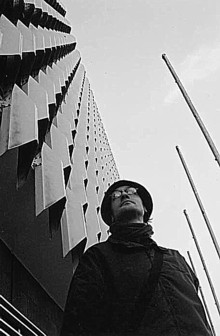
Igloo: There is too much music in the world. Do you agree with this statement?
Arovane: Indeed there’s a lot of sounds and music, a lot of labels and artists. It is hard to find music that you like. It is a good aspect that there are a lot of different styles in music and a lot of artist’s and labels. It depends on you to choose the music carefully and listen to it.
Igloo: What are your most favorite influences? What kind of music or what bands or musicians, or albums – influenced you?
Arovane: It is not just one style of music, or artists that influence me. Computer music and musique concrete influence me. Minimal music and gamelan music has it’s influences also.
::..:::…..:..::….:::::..:::..:::::::……:::…::.:::….::::..:..:::…::…….:::::
Interview Q & A by Boban Ristevski









